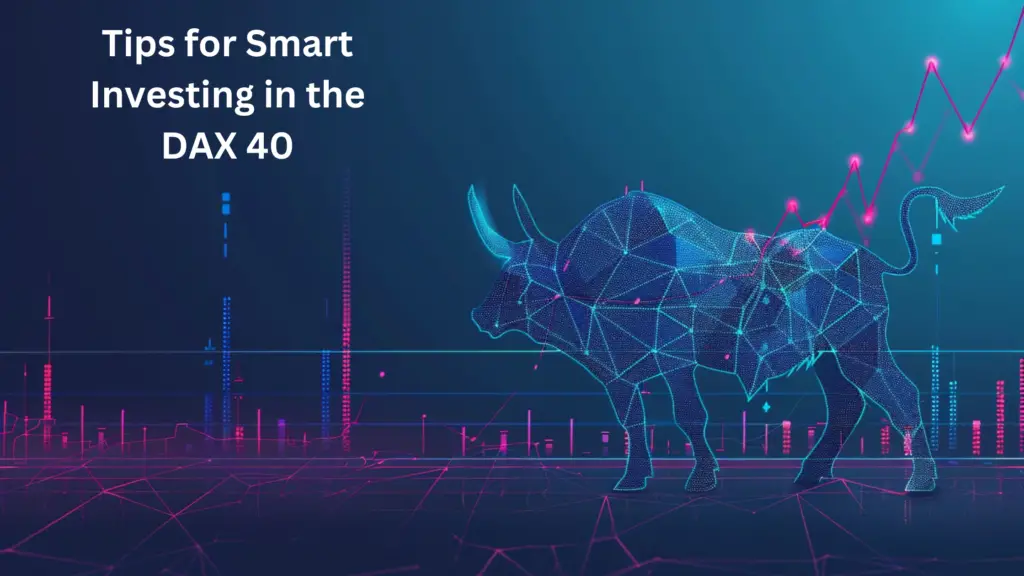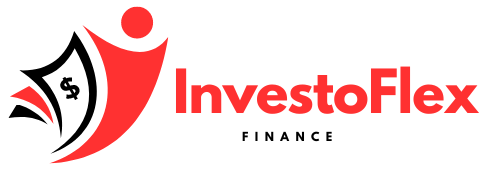When there are many measures and market news to consider, the world of stock markets can seem very big. Recently, many people have been paying more attention to the DAX 40 index, the main measure of Germany’s stock market.
The DAX 40 is a key gauge of the economy’s situation for buyers who want to boost their holdings or enter the European market.
We will thoroughly cover the FintechZoom.com DAX 40, highlighting its strengths and weaknesses, comparing it to other indices, and providing savvy investment recommendations.
What is the FintechZoom.com DAX 40?
The DAX 40, short for “Deutscher Aktienindex,” is a stock market index of the 40 largest publicly traded companies listed on the Frankfurt Stock Exchange.
It serves as a benchmark for the German economy, often reflecting the overall performance of the country’s industrial and financial sectors. In September 2021, the index was expanded from 30 to 40 companies, making it more comprehensive and diversified.
FintechZoom.com, a leading financial news platform, provides real-time updates, analysis, and insights about the DAX 40, making it easier for investors to follow the market trends, company news, and economic shifts affecting the index.
How Does it Compare to Other Stock Market Indexes?
When comparing the DAX 40 to other major global indexes, such as the S&P 500 in the United States or the FTSE 100 in the United Kingdom, a few differences stand out:
| Criteria | DAX 40 | FTSE 100 | S&P 500 |
| Location | Germany (Frankfurt Stock Exchange) | United Kingdom (London Stock Exchange) | United States (New York Stock Exchange, NASDAQ) |
| Number of Companies | 40 | 100 | 500 |
| Market Focus | Primarily multinational corporations, including auto and industrial sectors | Multinational companies, with a focus on financial services, energy, and commodities | Broad range of sectors, including tech, healthcare, finance, and industrial |
| Major Sectors | Automotive, Pharmaceuticals, Industrial Goods | Financial Services, Energy, Consumer Goods, Commodities | Technology, Healthcare, Finance, Consumer Goods, Industrials |
| Currency | Euro (€) | British Pound (£) | U.S. Dollar ($) |
| Market Capitalization | €1.6 trillion (approx.) | £2 trillion (approx.) | $40 trillion (approx.) |
| Index Weighting | Market capitalization-weighted | Market capitalization-weighted | Market capitalization-weighted |
| Key Components | Volkswagen, Siemens, BMW, BASF, SAP | HSBC, BP, GlaxoSmithKline, Unilever, Shell | Apple, Microsoft, Amazon, Alphabet, Tesla |
| Performance Indicators | Reflects Germany’s largest and most influential companies | Reflects the UK economy, particularly international exposure | Broad measure of U.S. economy, including both domestic and multinational corporations |
| Global Influence | Strong export-driven economy, highly sensitive to global trade and EU policies | Heavy global exposure due to the international nature of listed companies | Significant global influence due to U.S. economic dominance and leadership in tech and innovation |
| Dividend Yield | Lower on average compared to FTSE 100 | Generally higher dividend yield than DAX 40 | Moderate dividend yield, but varies across sectors (higher in utilities, finance) |
| Volatility | Higher volatility due to industrial and export-heavy companies | Comparatively lower volatility, with more stability from financial services and commodities | High volatility, especially influenced by tech and innovation-driven companies |
| Inclusion of Multinational Companies | Significant exposure to global markets, particularly Europe and China | Major international exposure across various sectors, including emerging markets | High international exposure, particularly from tech, healthcare, and finance sectors |
| Index History | Founded in 1988 | Founded in 1984 | Founded in 1957 |
| Recent Developments | Expansion from DAX 30 to DAX 40 in 2021, increasing its diversity and sectors represented | Post-Brexit implications on financial markets and trading, with increased focus on global companies | Continued growth in the tech sector, with dominance by the “Big Tech” companies |
| Tech and Innovation | Growing emphasis on innovation, especially in the industrial and automotive sectors | Less focus on technology, more on traditional sectors like finance and energy | Heavy focus on innovation, with tech giants like Apple, Microsoft, and Amazon leading the index |
Size and Scope: The DAX 40 focuses on 40 of the largest German companies, while the S&P 500 encompasses 500 companies from the U.S., making it broader in scope. Conversely, the FTSE 100 comprises the top 100 London Stock Exchange companies.
Dividend Reinvestment: The DAX 40 is unique because it is a total return measure. In other words, it considers how the companies in the index spent their profits. The S&P 500 is an example of a price return index, showing only how the stock price changes.
Economic Indicators: The DAX 40 is heavily influenced by the German economy, known for its strong manufacturing sector, exports, and global industrial leadership. By comparison, the S&P 500 and FTSE 100 reflect broader, more diverse economies.
Why You Should Invest in FintechZoom.com DAX 40
Investing in the FintechZoom.com DAX 40 can offer several advantages, particularly for those interested in gaining exposure to the German and European markets. Here’s why you might consider it:

Global Industry Leaders: The DAX 40 includes internationally renowned companies like Siemens, Volkswagen, BMW, and SAP, which are leaders in their respective sectors. This gives investors access to some of the most steady and profitable businesses around.
Economic Stability: Germany is Europe’s largest economy and one of the most stable in the world. The DAX 40 reflects this stability, providing investors with relatively lower risk than more volatile markets.
Diversification: The DAX 40 companies work in various fields, such as manufacturing, healthcare, technology, and the automobile industry. This means that investors can spread their money around different areas.
Dividend Yield: The DAX 40 is a total return index, so you can gain from reinvested earnings, which could lead to better long-term returns.
Benefits and Risks of Investing in the FintechZoom.com DAX 40
Benefits:
High-Quality Companies: Leaders in their fields, the firms on the DAX 40 provide a reasonably secure investment.
Long-Term Growth: DAX 40 has had a good track record in the past, which shows how Germany’s strong economy has grown.
Dividend Reinvestment: As a total return index, investors benefit from reinvesting dividend payouts, potentially compounding their earnings.
Risks:
Market Fluctuations: The DAX 40, like any stock market index, exhibits short-term volatility. It could suffer from fluctuations in industrial demand, European economic downturns, or worldwide financial crises.
Currency Risk: For investors outside the Eurozone, euro value fluctuations can affect returns. If the euro weakens against other currencies, this could impact the profitability of investments in the DAX 40.
Concentration Risk: The DAX 40 is still mostly tied to the German economy, even though it includes companies from many fields. Investors should know the risks of concentrating investments in one country’s market.
The History and Evolution of the FintechZoom.com DAX 40
The DAX 40 was initially introduced in 1988 with 30 companies. It aimed to track the performance of Germany’s top publicly traded corporations. As many of its companies operate internationally, it has become a key indicator for the global economy.

In 2021, the DAX expanded to include 40 companies, following criticism that the index was not broad enough to accurately represent the scope of the German economy.
The index was updated to compete with foreign benchmarks such as the S&P 500 and the FTSE 100. This change was part of a larger plan to do that.
The FintechZoom.com website provides up-to-date news, research, and data, making the DAX 40 easier for buyers worldwide to access.
Top Companies Listed on the DAX 40
Here are some of the top companies currently listed on the DAX 40:
Siemens AG – A pioneer in infrastructure and industrial automation worldwide.
Volkswagen AG – One of the largest automobile manufacturers in the world.
SAP SE – A top company that makes tools for businesses.
Allianz SE – A multinational financial services company specializing in insurance and asset management.
BMW AG – A premium automobile and motorcycle manufacturer.
These companies are considered some of the most reliable and stable investments within the DAX 40, making them attractive to domestic and international investors.
Tips for Smart Investing in the DAX 40
Diversify Your Portfolio: Although the DAX 40 gives you access to the best German companies, you should still spread your money to different global indexes and areas.

Stay Informed: Watch FintechZoom.com for news and information about the DAX 40. You can make better financial choices if you keep up with business news, earnings reports, and economic trends.
Consider Currency Risk: If you’re outside the Eurozone, be mindful of fluctuations in the euro exchange rate, as it can impact your returns.
Invest for the Long Term: The DAX 40’s long-term development has been robust. Investing in stock market indexes requires patience, as short-term volatility is unavoidable.
Final Words
The DAX 40 is a unique chance for buyers to invest in one of the world’s most safe and successful countries. FintechZoom.com provides buyers with information that helps them keep up with market trends, business news, and economic changes that affect the index.
Investing in the DAX 40 allows you to meet stars in various areas, from technology to cars. Still, just like with any other purchase, you should have a long-term plan and be aware of the risks and benefits.
FAQ
Q: What is the DAX 40?
A: The DAX 40 is a stock market index consisting of the 40 largest companies listed on the Frankfurt Stock Exchange. It serves as a key indicator of the German economy.
Q: How can I invest in the DAX 40?
A: You can invest in the DAX 40 through exchange-traded funds (ETFs), mutual funds, or directly purchasing shares of companies listed on the index.
Q: What makes the DAX 40 different from other indexes?
A: The DAX 40 is a total return index, which means that, unlike other indexes, it takes reinvested dividends into account when calculating returns, which might result in better long-term gains.
Q: Is the DAX 40 a good investment?
A: If you want to invest in well-established firms and diversify into the European market, the DAX 40 might be a decent option. However, like every stock market index, there are dangers associated with it.
Note: Why Choose Retik Finance for Your Wealth Management and Investment

